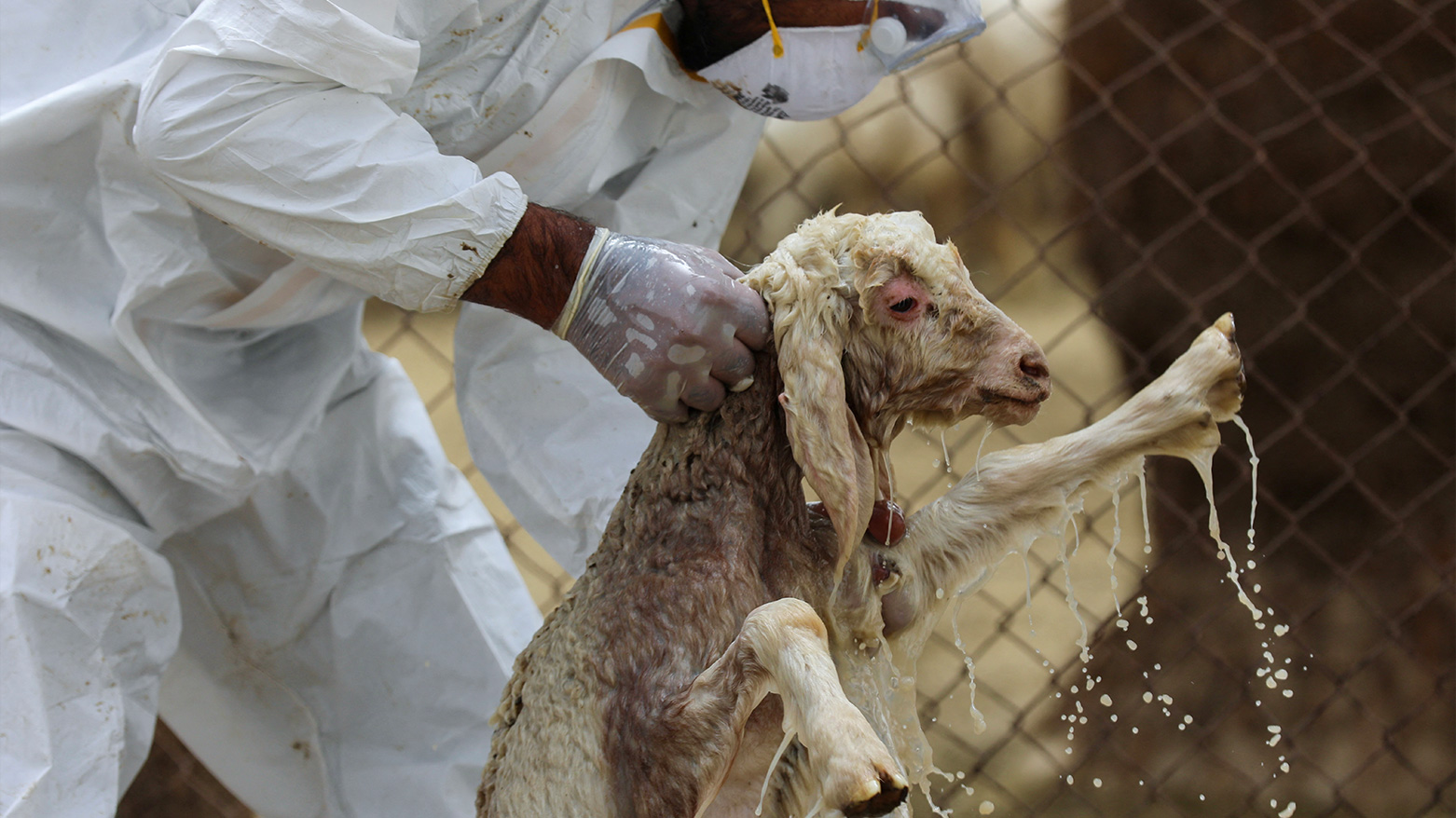First Hemorrhagic Fever Case Confirmed: KRG Moves Swiftly to Contain Threat
According to Dr. Sarkar Surchi, spokesperson for the Ministry of Health of the Kurdistan Regional Government (KRG), the patient is a 42-year-old butcher from the city of Koya.

By Kamaran Aziz
ERBIL (Kurdistan24) — The Kurdistan Region recorded its first confirmed case of hemorrhagic fever on Friday, prompting immediate health and administrative action across the region to contain the potentially fatal viral disease.
According to Dr. Sarkar Surchi, spokesperson for the Ministry of Health of the Kurdistan Regional Government (KRG), the patient is a 42-year-old butcher from the city of Koya. He is currently receiving treatment at a hospital in Erbil and is reported to be in stable condition. The Ministry urged vigilance and strict compliance with public health guidelines to prevent further cases.
“We are closely monitoring the situation and coordinating with medical and veterinary teams to prevent the spread of the disease,” Dr. Surchi said in a press briefing. He urged citizens, especially those who raise livestock or work with animal products, to seek medical attention if they notice any symptoms or irregularities in their health or among their animals.
Hemorrhagic fever is a severe and often deadly illness transmitted primarily through contact with infected animals or their blood, particularly in environments involving animal slaughter or husbandry. Ticks are considered major vectors of the disease, which can lead to high fever, internal bleeding, and organ failure if not treated promptly.
In anticipation of such a case, a special emergency meeting was convened on April 27 at the Erbil Governorate Office to discuss preventive measures and rapid-response strategies. Following the meeting, the authorities announced a nine-point plan to curtail the spread of the virus and ensure public safety.
Among the key measures enacted:
- Unauthorized animal slaughter outside licensed slaughterhouses is strictly prohibited. Violators will face legal action.
- All butchers must adhere to health protocols, including the use of gloves, masks, and protective gear.
- Citizens are urged to purchase red meat only from officially authorized vendors and ensure they follow safe food handling practices—such as using separate cutting boards for meat and vegetables and avoiding contact between open wounds and raw meat.
In addition, the Ministry of Agriculture and veterinary departments have launched widespread disinfection campaigns. Domestic and commercial animals in Erbil province are now being systematically washed and sprayed with anti-tick agents under veterinary supervision. Farm owners, butchers, and livestock traders have been instructed to comply with these measures.
Animal gardens and livestock markets across the province are also under new directives to sanitize all animals under government oversight. The entry of animals and meat products into Erbil from external sources has been temporarily banned unless accompanied by certified veterinary and health inspections.
Dr. Surchi reiterated that public health and safety remain the top priorities of the KRG. “While the patient’s condition is currently stable, this incident must serve as a wake-up call. We need full cooperation from the public to ensure that this virus does not spread,” he emphasized.
The Ministry of Health, in collaboration with the Directorate of Veterinary Affairs, will continue monitoring the situation and issue further guidelines as necessary. Educational efforts are also underway in villages and towns to raise awareness about preventive measures and symptoms of the disease.
Authorities called on all local administrations to remain on high alert and prepare their medical facilities for potential cases. As the summer months approach and livestock activities increase, officials warned that without rigorous enforcement and public compliance, the risk of further infections remains high.
Residents across the Kurdistan Region are advised to remain calm but cautious, stay informed through official health channels, and report any suspected symptoms—whether in humans or animals—to their nearest healthcare facility or veterinary team.
With swift government coordination and public vigilance, health authorities remain hopeful that this first case of hemorrhagic fever in the Kurdistan Region can be contained effectively before it escalates into a broader health crisis.
